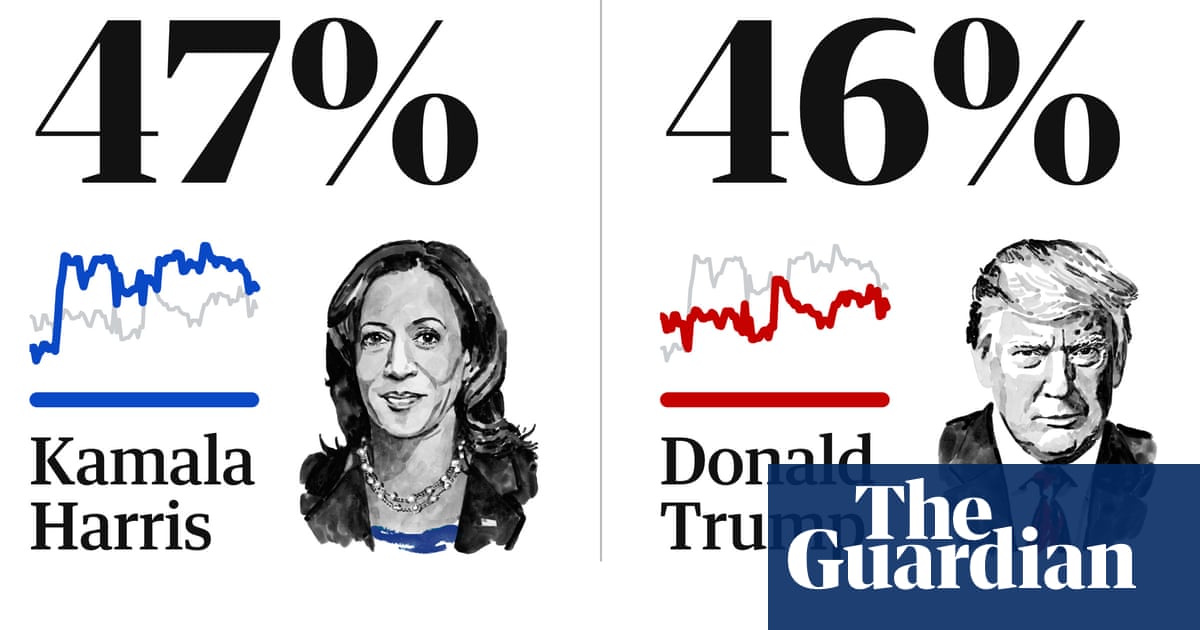On 21 July, Joe Biden dropped out of the presidential race and endorsed Kamala Harris. This historic move changed the landscape of the election and how many felt about the race. The Guardian US is averaging national and state polls to see how the two candidates are faring. We update our averages once a week, or more if there is major news.
Latest polls
Polling average over a moving 10-day period
Guardian graphic. Source: Analysis of polls gathered by 538.
Latest analysis: Kamala Harris and Donald Trump are locked in a nail-bitingly close US presidential election race. Harris maintains a single point advantage over her Republican rival.
The mood between the camps for the two candidates, though, are jarringly different, despite the coin-toss chance. Taken at face value, the figures are no disaster for Harris and hardly represent a triumph for Trump. If they match the outcome on 5 November, Harris will win a majority of votes in the electoral college.
– Robert Tait, 26 October
Polling over time
Polling average over a moving 10-day period. Each circle represents an individual poll result and is sized by 538’s pollster rating
Notes on data
To calculate our polling averages, Guardian US took a combination of head-to-head and multi-candidate polls and calculated a rolling 10-day average for each candidate. Our tracker uses polls gathered by 538 and filters out lower-quality pollsters for national polls. Our state polling averages use a lower quality threshold for inclusion due to the small numbers of state polls. If there were no polls over the the 10-day period, we leave the average blank. On 11 Oct Guardian US began rounding averages to the nearest whole number to better reflect the lack of certainty in the polling figures.
Polling averages capture how the race stands at a particular moment in time and are likely to change as the election gets closer. Averages from states with small numbers of polls are also more susceptible to errors and biases. Our averages are an estimate of the support that the candidates have in key swing states and on the national stage. The election is decided by the electoral college, so these averages should not be taken as a likelihood of winning the election in November.
Read more about the US election:

